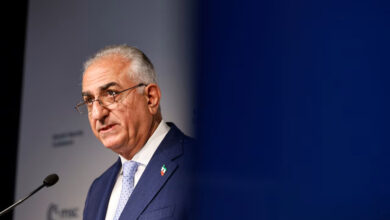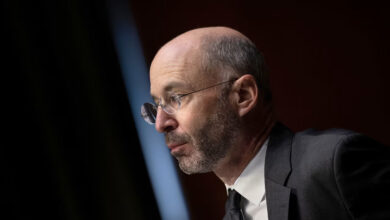
BRUSSELS (AP) — Iran and the major powers in the agreement to keep Tehran from developing nuclear weapons said Friday they were ready to welcome the return of the United States to the deal.
The chair of the group including the European Union, China, France, Germany, Russia, Britain and Iran said that the participants “recognized the prospect of a full return of the US to the JCPOA, and underlined their readiness to positively address this in a joint effort,” referring to the acronym for the accord — the Joint Comprehensive Plan of Action.
They said they “emphasized their commitment to preserve the JCPOA and discussed modalities to ensure the return to its full and effective implementation,” according to a statement after their virtual meeting,
The group said they would resume further talks next week in Vienna on the 2015 agreement, “in order to clearly identify sanctions lifting and nuclear implementation measures.”
The statement also said that the group’s coordinator “will also intensify separate contacts in Vienna” with all participants of the nuclear agreement and the United States.
In Tehran, state television quoted Abbas Araghchi, Iran’s nuclear negotiator in the Friday virtual meeting, as saying in the meeting that any “return by the US to the nuclear deal does not require any negotiation and the path is quite clear.”
“The US can return to the deal and stop breaching the law in the same way it withdrew from the deal and imposed illegal sanctions on Iran,” Araghchi was quoted as as saying.
Russia’s ambassador to international organizations in Vienna, Mikhail Ulyanov, said that “the impression is that we are on the right track, but the way ahead will not be easy and will require intensive efforts. The stakeholders seem to be ready for that.”
Washington pulled out of the deal unilaterally in 2018 under President Donald Trump, but successor Joe Biden has indicated that the US would be willing to rejoin.
But there are complications. Iran has been steadily violating the restrictions of the deal, like the amount of enriched uranium it can stockpile and the purity to which it can enrich it. Tehran’s moves have been calculated to put pressure on the other nations in the deal — Russia, China, France, Germany and Britain — to do more to offset crippling sanctions reimposed under Trump.
Iran has said that before it resumes compliance with the deal, the US needs to return to its own obligations under the deal by dropping the sanctions.
The International Atomic Energy Agency has said that over the past two years, Iran has accumulated a lot of nuclear material and new capacities, and used the time for “honing their skills in these areas.”
The ultimate goal of the deal is to prevent Iran from developing a nuclear bomb, something it insists it doesn’t want to do. Iran now has enough enriched uranium to make a bomb, but nowhere near the amount it had before the nuclear deal was signed.
As part of its ongoing violations of the JCPOA, Iran last month began restricting IAEA inspections of its nuclear facilities. Under a last-minute deal worked out during a trip to Tehran, however, some access was preserved.
Under that temporary agreement, Iran will no longer share surveillance footage of its nuclear facilities with the IAEA, but it has promised to preserve the tapes for three months. It will then hand them over to the Vienna-based U.N. atomic watchdog if it is granted sanctions relief. Otherwise, Iran has vowed to erase the tapes, narrowing the window for a diplomatic breakthrough.




